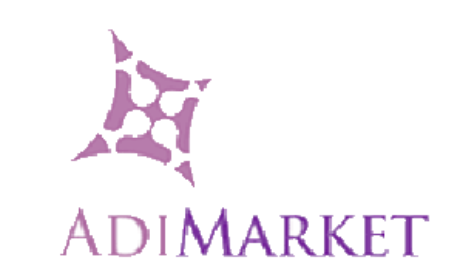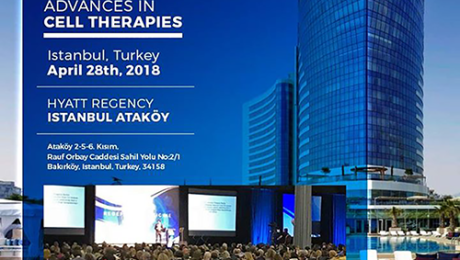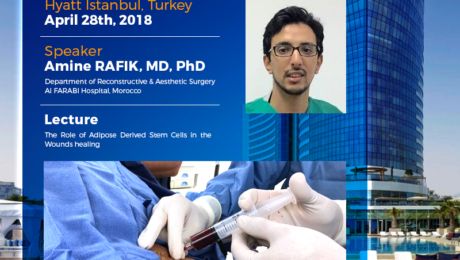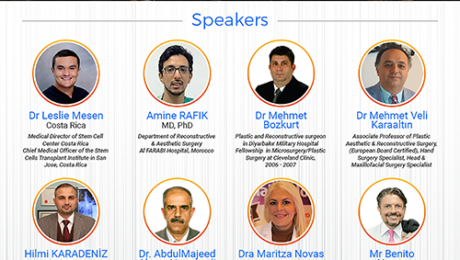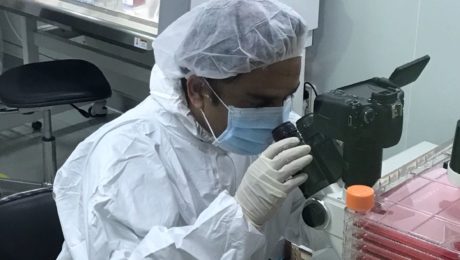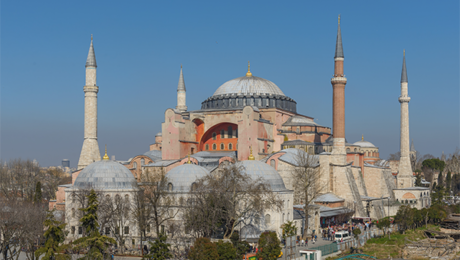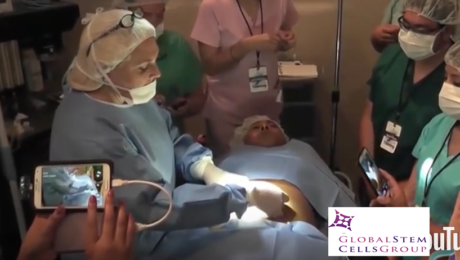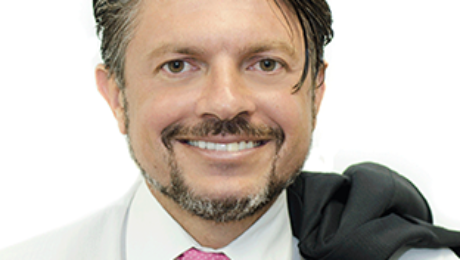Adimarket named distributor for Prostemics’ AAPE regenerative stem cell skin and hair products
Global Stem Cells Group affiliate Adimarket is named official distributor of Prostemics’ advanced adipose-derived stem cell protein extract (AAPE) biologic products.
MIAMI, March 18, 2018—Global Stem Cells Group subsidiary Adimarket has been named the official distributor of advanced adipose-derived stem cell protein extract (AAPE) products manufactured by Prostemics.
AAPE hair and skin care products, available through Adimarket’s online regenerative medicine store, leverage the regenerative power of stem cells for use in anti-aging and restorative skin and hair products by utilizing medical techniques to extract, manipulate, and process adipose-derived stem cells.
AAPE product benefits:
Skin care
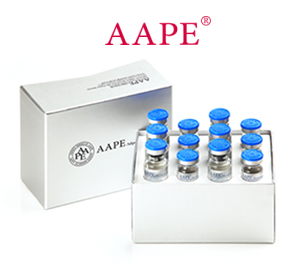 More than 800 types of human protein extracts in stem cells provide superior biological activity to boost cell repair and improve skin elasticity that is lost in the natural aging process. AAPE can be applied in various areas of clinical treatment with MTS and laser for anti-wrinkle, anti-oxidation, wound healing, and whitening effects. In Japan, more than 200 dermatologic clinics use AAPE for skin rejuvenation. AAPE is approved by dermatologists and medical professionals in the U.S., Korea, and Japan. Since it is extracted from human adipose-derived stem cells, AAPE is considered very safe, effective, and powerful for anti-aging skin care regimens.
More than 800 types of human protein extracts in stem cells provide superior biological activity to boost cell repair and improve skin elasticity that is lost in the natural aging process. AAPE can be applied in various areas of clinical treatment with MTS and laser for anti-wrinkle, anti-oxidation, wound healing, and whitening effects. In Japan, more than 200 dermatologic clinics use AAPE for skin rejuvenation. AAPE is approved by dermatologists and medical professionals in the U.S., Korea, and Japan. Since it is extracted from human adipose-derived stem cells, AAPE is considered very safe, effective, and powerful for anti-aging skin care regimens.
Hair care:
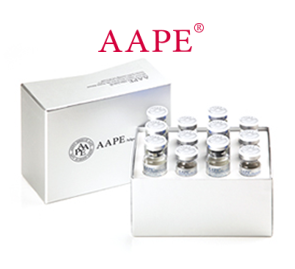 AAPE hair care serum is a non-invasive treatment that can be applied in a clinical setting without discomfort or downtime as a hair loss treatment.
AAPE hair care serum is a non-invasive treatment that can be applied in a clinical setting without discomfort or downtime as a hair loss treatment.
The serum’s adipose or fat tissue content provides large numbers of mesenchymal stem cells (MSCs) which are located within the stromal vascular fraction (SVF) which contains powerful regenerative stem and stromal cells, progenitor cells, growth factors and many other powerful biologic components that work to regenerate cell growth.
AAPE hair treatments can be used with PRP or Platelet Rich Plasma. Like PRP, recent scientific literature supports the use of adipose-derived stem cells to help enhance hair growth from weak hair follicles.
About Adimarket:
Adimarket, Inc., a division of the Global Stem Cells Group, is a one-stop, cost-competitive online marketplace for quality regenerative medicine equipment and supplies for physicians and healthcare professionals.
Adimarket was founded to provide practitioners the tools they need to practice regenerative medicine in a medical office setting. Motivated by a firm belief in the impact stem cell medicine can have when dispensed in a doctor’s office, Adimarket provides physicians with the tools they need to provide patients with cutting-edge treatments.
###
AAPE products
- Published in Press Releases
Abdul Majeed M.D. and Hilmi Karadeniz, M.D. to speak at ISSCA Regenerative Medicine Symposium April 28
ISSCA announces keynote speakers Abdul Majeed, M.D. and Hilmi Karadeniz, M.D. at the Regenerative Medicine Cell Therapies Symposium in Istanbul, Turkey, April 28, 2018.
MIAMI, March 18, 2018—Abdul Majeed, M.D. and Hilmi Karadeniz, M.D. will be featured speakers at the ISSCA Regenerative Medicine Cell Therapies Symposium in Istanbul, Turkey April 28, 2018. Majeed will discuss findings of a recent study on intra-arterial injection of autologous bone marrow-derived mononuclear cells in ischemic stroke patients. Karadeniz will speak on current approaches to the application of regenerative treatments in athletes.
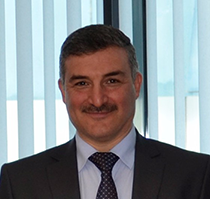
Abdul Majeed, M.D.
In 2004, Majeed invited Prof. Marino Andolina (a pediatric immunologist from Trieste Italy) to Baghdad to perform the first autologous bone marrow transplant in Iraq. In 2009, Majeed and his team in Iraq began providing bone marrow-derived stem cell therapy for spinal cord injuries, multiple sclerosis, muscular dystrophy, and other medical conditions. He served as director of the bone marrow transplantation unit at the medical city hospital in Baghdad from 2011 to 2017.
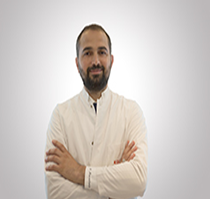
Hilmi Karadeniz, M.D.
He studied at Istanbul School of Medicine, Istanbul University from 1998 – 2004, and Orthopedics and Traumatology Clinic II, Istanbul Research and Training Hospital, Ministry of Health from 2005 – 2011. Karadeniz currently serves as an orthopedic surgeon and traumatologist at Şişli Kolan Hospital in Istanbul.
The Istanbul international symposium is part of ISSCA’s mission to support a paradigm shift from traditional healthcare solutions to regenerative medicine and provide the latest innovative discoveries and developments in all areas of stem cell research. The symposium will host a group of renowned international speakers, experts in the field of stem cell and regenerative medicine, who will provide a full day of rigorous scientific discourse directed to physicians.
The day’s events will incorporate information on stem cell biology, medicine, applications, regulations, product development, and commercialization, business opportunities, challenges, and potential strategies for overcoming those challenges.
To participate in the ISSCA Istanbul Symposium, reserve your spot by registering today. For more information, visit the stemcellconference.org website, email info@stemcellsgroup.com, or call +1305 560 5337.
About International Society for Stem Cell Application (ISSCA):
The International Society for Stem Cell Application (ISSCA) is a multidisciplinary community of scientists and physicians, all of whom aspire to treat diseases and lessen human suffering through advances in science, technology and the practice of regenerative medicine. ISSCA serves its members through advancements made to the specialty of regenerative medicine.
The ISSCA’s vision is to take a leadership position in promoting excellence and setting standards in the regenerative medicine fields of publication, research, education, training, and certification.
As a medical specialty, regenerative medicine standards and certifications are essential, which is why ISSCA offers certification training in cities all over the world. The goal is to encourage more physicians to practice regenerative medicine and make it available to benefit patients both nationally and globally. Incorporated under the Republic of Korea as a non-profit entity, the ISSCA is focused on promoting excellence and standards in the field of regenerative medicine.
###
Abdul Majeed, M.D. and Hilmi Karadeniz, M.D.
- Published in Press Releases
Vascular Tissue Engineering: Progress, Challenges, and Clinical Promise
Introduction
The clinical demand for bioengineered blood vessels continues to rise, yet current options for vascular conduits remain limited. The synergistic combination of emerging advances in tissue fabrication and stem cell engineering promises new strategies for engineering autologous blood vessels that recapitulate not only the mechanical properties of native vessels but also their biological function. Here, we explore recent bioengineering advances in creating functional blood macro and microvessels, particularly featuring stem cells as a seed source. We also highlight progress in integrating engineered vascular tissues with the host after implantation and the exciting pre-clinical and clinical applications of this technology.
The Clinical Need for Vascular Grafts
Ischemic diseases, such as atherosclerotic cardiovascular disease (CVD), remain one of the leading causes of mortality and morbidity worldwide (GBD 2015 Mortality and Causes of Death Collaborators, 2016; Mozaffarian et al., 2016). These diseases have resulted in an ever-persistent demand for vascular conduits to reconstruct or bypass vascular occlusions and aneurysms. Synthetic grafts for replacing occluded arterial vessels were first introduced in the 1950s following surgical complications associated with harvesting vessels, the frequent shortage of allogeneic grafts, and immunologic rejection of large animal-derived vessels. Despite advances in pharmacology, materials science, and device fabrication, these synthetic vascular grafts have not significantly decreased overall mortality and morbidity (Nugent and Edelman, 2003; Prabhakaran et al., 2017).
Challenges with Synthetic Grafts
Synthetic grafts continue to exhibit a number of shortcomings that have limited their impact. These shortcomings include low patency rates for small diameter vessels (< 6 mm in diameter), a lack of growth potential for the pediatric population necessitating repeated interventions, and susceptibility to infection. Vascular conduits are also needed for clinical situations such as hemodialysis, which involves large volumes of blood that must be withdrawn and circulated back into a patient several times a week for several hours.
The Importance of Microvascularization
In addition to large-scale vessel complications, ischemic diseases also arise at the microvasculature level (< 1 mm in diameter), where replacing upstream arteries would not address the reperfusion needs of downstream tissues (Hausenloy and Yellon, 2013; Krug et al., 1966). Microvascularization has proven to be a critical step during regeneration and wound healing, where the delay of wound perfusion (in diabetic patients, for example) significantly slows down the formation of granulation tissue and can lead to severe infection and ulceration (Baltzis et al., 2014; Brem and Tomic-Canic, 2007; Randeria et al., 2015).
Structural Components of Blood Vessels
To design advanced grafts, it is important to consider the structural components of a blood vessel. Many different blood vessel beds share common structural features. Arteries, veins, and capillaries have a tunica intima comprised of endothelial cells (EC), which regulate coagulation, confer selective permeability, and participate in immune cell trafficking (Herbert and Stainier, 2011; Potente et al., 2011). Arteries and veins are further bound by a second layer, the tunica media, composed of smooth muscle cells (SMC), collagen, elastin, and proteoglycans, conferring strength to the vessel and acting as effectors of vascular tone. Vascular tissue engineering has evolved to generate constructs that incorporate the functionality of these structural layers, withstand physiological stresses inherent to the cardiovascular system, and promote integration in host tissue without mounting immunologic rejection (Chang and Niklason, 2017).
Suitable Cell Sources
A suitable cell source is critical to help impart structural stability and facilitate in vivo integration. Patient-derived autologous cells are one potential source that has garnered interest because of their potential to minimize graft rejection. However, isolating and expanding viable primary cells to a therapeutically relevant scale may be limited, given that patients with advanced arterial disease likely have cells with reduced growth or regenerative potential. With the advancement of stem cell (SC) technology and gene editing tools such as CRISPR, autologous adult and induced pluripotent stem cells (iPSCs) are emerging as promising alternative sources of ECs and perivascular SMCs that can be incorporated into the engineered vasculature (Chan et al., 2017; Wang et al., 2017).
Engineering and Integration of Vascular Tissues
A viable cell source alone is not sufficient for therapeutic efficacy. Although vascular cells can contribute paracrine factors and have regenerative capacity, merely delivering a dispersed mixture of ECs to the host tissue has shown limited success at forming vasculature or integrating with the host vasculature (Chen et al., 2010). Recent tissue engineering efforts have focused on recreating the architecture and function of the vasculature in vitro before implantation, with the hypothesis that pre-vascularized grafts and tissues enhance integration with the host.
Clinical Applications
The first reported successful clinical application of tissue-engineered blood vessels (TEBV) in patients was performed by Shin’oka et al., who implanted a biodegradable construct as a pulmonary conduit in a child with pulmonary atresia and single ventricle anatomy (Shin’oka et al., 2001). The construct was composed of a synthetic polymer mixture of L-lactide and e-caprolactone, reinforced with PGA, and seeded with autologous bone marrow-derived mesenchymal stem cells (BM-MSCs). The authors demonstrated patency and patient survival 7 months post-implant, and expanded their study to a series of 23 implanted TEBVs and 19 tissue patch repairs in pediatric patients (Hibino et al., 2010). They reported no graft-related mortality, and four patients required interventions to relieve stenosis at a mean follow-up of 5.8 years.
The first sheet-based technology to seed cultured autologous cells, developed by L’Heureux et al., induced cultured fibroblast cell sheets over a 10-week maturation period to produce tubules of endogenous ECM over a production time ranging between 6 and 9 months. They dehydrated and provided a living adventitial layer before seeding the constructs with ECs (L’Heureux et al., 2006). Their TEBV, named the Lifeline graft, was implanted in 9 of 10 enrolled patients with end-stage renal disease on hemodialysis and failing access grafts in a clinical trial. Six of the nine surviving patients had patent grafts at 6 months, while the remaining grafts failed due to thrombosis, rejection, and failure (McAllister et al., 2009).
Future Directions
Harnessing the regenerative functions reported in ECs derived from adult stem cells and iPSCs offers the promise of improving TEBV patency. Mcllhenny et al. generated ECs from adipose-derived stromal cells, transfected them with an adenoviral vector carrying the endothelial nitric oxide synthase (eNOS) gene, and seeded the ECs onto decellularized human saphenous vein scaffolds (McIlhenny et al., 2015). They hypothesized that through inhibition of platelet aggregation and adhesion molecule expression, nitric oxide synthesis would prevent thrombotic occlusion in TEBV. Indeed, they reported patency with a non-thrombogenic surface 2 months post-implantation in rabbit aortas. Engineering ECs and SMCs with other regenerative, anti-inflammatory, and anti-thrombotic genes could bridge the functional difference between SC-derived cells and native primary cells.
- Published in Corporate News / Blog
MIAMI, Feb 19, 2018—Amine Rafik, M.D., Ph.D., a member of the Global Stem Cells Group Advisory Board, will be a keynote speaker at the International Association for Stem Cell Application (ISSCA) Regenerative Medicine Cell Therapies Symposium in Istanbul, Turkey April 28, 2018. Rafik will speak on the role of adipose-derived stem cells in regenerative medicine as an attractive alternative to the use of stem cells derived from bone marrow and other sources, due to their abundance in fat and their ability to be easily harvested.
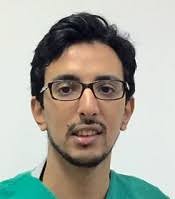
Amine Rafik, M.D., Ph.D
Rafik will present a retrospective review of patients treated for leg ulcers with lipofilling between 2011 – 2014 at the National Centre for Burns and Plastic Surgery, University Hospital. Ibn-Rochd Casablanca, Morocco.
Rafik’s lecture will include patient demographic data and digital photographs taken on the day of each patient’s surgery and every day thereafter. ASC patients received three treatments of 20 cc of autologous adipose stem cell injections in the subcutaneous tissue surrounding the ulcer with time to wound closure defined as the time at which the wound bed was completely re-epithelialized and filled with new tissue.
He will discuss study results revealing the average time for wound closure in adipose stem cell (ASC) recipient patients compared to control group patients. He will also examine the study’s conclusion that suggests local transplantation of autologous adipose stem cells could accelerate wound healing, and that some clinical aspects of wound healing, as well as the potential for therapies based on stem cells, represent a feasible therapeutic approach to the treatment of clinical wounds.
Rafik is a consultant and plastic, reconstructive and aesthetic surgeon at Al Farabi Hospital in Morocco. He specializes in reconstructive plastic surgery particularly for the face, head, and neck, as well as for patients who require reconstructive surgery following treatment for skin cancer or trauma. Rafik also performs cosmetic surgery and microsurgery.
He completed his plastic surgery training in Casablanca and was awarded full membership to the American Academy of Cosmetic Surgery in 2015, and the European Association of Maxilla-Facial surgery in 2016.
He is a reviewer for many international indexed journals, including; OncoTargets and Therapy Journal, the British Journal of Medicine and Medical Research, and the Cancer and Clinical Oncology Journal, published by Canadian Center of Science and Education, where he is a member of the editorial board.
The Istanbul international symposium is part of ISSCA’s mission to support a paradigm shift from traditional healthcare solutions to regenerative medicine and provide the latest innovative discoveries and developments in all areas of stem cell research. The symposium will host a group of renowned international speakers, experts in the field of stem cell and regenerative medicine, who will provide a full day of rigorous scientific discourse directed to physicians.
The day’s events will incorporate information on stem cell biology, medicine, applications, regulations, product development, and commercialization, business opportunities, challenges, and potential strategies for overcoming those challenges.
To participate in the ISSCA Istanbul Symposium, reserve your spot by registering today.
For more information, visit the stemcellconference.org website, email info@stemcellsgroup.com, or call +1305 560 5337.
About International Society for Stem Cell Application (ISSCA):
The International Society for Stem Cell Application (ISSCA) is a multidisciplinary community of scientists and physicians, all of whom aspire to treat diseases and lessen human suffering through advances in science, technology and the practice of regenerative medicine. ISSCA serves its members through advancements made to the specialty of regenerative medicine.
The ISSCA’s vision is to take a leadership position in promoting excellence and setting standards in the regenerative medicine fields of publication, research, education, training, and certification.
As a medical specialty, regenerative medicine standards and certifications are essential, which is why ISSCA offers certification training in cities all over the world. The goal is to encourage more physicians to practice regenerative medicine and make it available to benefit patients both nationally and globally. Incorporated under the Republic of Korea as a non-profit entity, the ISSCA is focused on promoting excellence and standards in the field of regenerative medicine.
###
ISSCA conference speaker Amine Rafik
- Published in Press Releases
ISSCA to Host Regenerative Medicine Cell Therapies Symposium at Hotel Hyatt Regency, Istanbul, Turkey
ISSCA Istanbul conference: The International Association for Stem Cell Application (ISSCA) has announced plans to host a regenerative medicine symposium at the Hotel Hyatt Regency in Istanbul, Turkey April 28, 2018.
MIAMI, Feb 19, 2018—The International Association for Stem Cell Application (ISSCA) will host its next regenerative medicine symposium at the Hotel Hyatt Regency in Istanbul, Turkey April 28, 2018.
The symposium agenda will focus on:
- Molecular biology
- Clinical advances in stem cell research
- Models of treatment in surgical and cosmetic applications, and in clinical conditions
- Technological advances
- Application of minimally manipulated stem cells in the physician’s office
- Stem cells, regenerative medicine and its application in anti-aging medicine, Pain Management and Orthopedics
- Medical legal issues.
- Regulatory Pathways
Istanbul, the economic, cultural, and historic center of Turkey, is the country’s most populous city. The luxurious Hotel Hyatt Regency, located near Istanbul’s Ataturk Airport, offers visitors the combination of comfort, culture, and convenience for exploring the ancient city. Symposium attendees will be able to discover sights such as the Blue Mosque and the Hagia Sophia.
The Istanbul international symposium is part of ISSCA’s mission to support a paradigm shift from traditional healthcare solutions to regenerative medicine, and provide the latest innovative discoveries and developments in all areas of stem cell research. The symposium will host a group of renowned international speakers, experts in the field of stem cell and regenerative medicine, who will provide a full day of rigorous scientific discourse directed to physicians.
The day’s events will incorporate information on stem cell biology, medicine, applications, regulations, product development, and commercialization, business opportunities, challenges, and potential strategies for overcoming those challenges.
To participate in the ISSCA Istanbul Symposium, reserve your spot by registering today.
For more information, visit the stemcellconference.org website, email info@stemcellsgroup.com, or call +1305 560 5337.
About International Society for Stem Cells Applications
The International Society for Stem Cell Application (ISSCA) is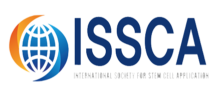 a multidisciplinary community of scientists and physicians, all of whom aspire to treat diseases and lessen human suffering through advances in science, technology and the practice of regenerative medicine. ISSCA serves its members through advancements made to the specialty of regenerative medicine.
a multidisciplinary community of scientists and physicians, all of whom aspire to treat diseases and lessen human suffering through advances in science, technology and the practice of regenerative medicine. ISSCA serves its members through advancements made to the specialty of regenerative medicine.
The ISSCA’s vision is to take a leadership position in promoting excellence and setting standards in the regenerative medicine fields of publication, research, education, training, and certification.
As a medical specialty, regenerative medicine standards and certifications are essential, which is why ISSCA offers certification training in cities all over the world. The goal is to encourage more physicians to practice regenerative medicine and make it available to benefit patients both nationally and globally. Incorporated under the Republic of Korea as a non-profit entity, the ISSCA is focused on promoting excellence and standards in the field of regenerative medicine.
###
ISSCA Istanbul conference
- Published in Press Releases
MIAMI, Feb 19, 2018—Leslie Mesen, M.D., a leader in the field of anti-aging medicine in Latin America and medical director of Global Stem Cells Group affiliate Stem Cell Center in Escazu, Costa Rica, will be a keynote speaker at the International Association for Stem Cell Application (ISSCA) Regenerative Medicine Cell Therapies Symposium in Istanbul, Turkey April 28, 2018.
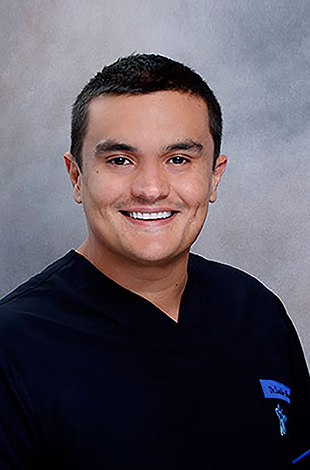
Leslie Mesen, M.D.
Mesen will present a lecture detailing the wound-healing potential of mesenchymal stem cell procedures—both SVF and BMAC—in wounds when no other treatment options exist. Mesen will discuss his experience successfully treating a serious foot wound using mesenchymal stem cells in a 45-year-old patient. The wound was the result of a 30.000-volt shock caused when the patient came in contact with a high-tension power line. The shock traveled down the patient’s leg and exited through his left foot, leaving the wound and underlying structure exposed.
Three months post-injury, the patient’s foot wound was not healing. Mesen administered an SVF autologous stem cell procedure and, four-weeks post-stem cell treatment, the wound showed significant improvement (70 percent wound closure) with clear new tissue growth visible around the wound. Mesen then performed an activated PRP procedure to further stimulate cell division.
Two weeks after the PRP treatment, the patient was walking in shoes, and underwent a final stem cell procedure. Over a period of five weeks, the patient—an electrician– recovered the ability to care for himself. He is expected to return to work soon.
Mesen is board certified in anti-aging and regenerative medicine by The American Academy of Anti-Aging Medicine and a pioneer in anti-aging medicine in Latin America.
He has extensive experience as the chief medical officer of three highly recognized anti-aging institutes: Costagenics Age Management program (2007-2010), Anti-Aging Institute of the Americas (2010-2013) and the Anti-Aging and Wellness Clinic (2014- present).
Mesen studied medicine at Universidad Iberoamericana (UNIBE) in San José, Costa Rica and receives continuing education courses in the United States and Latin America. In the U.S., he has trained at the University of Miami Jackson Memorial Hospital. His range of services encompass all aspects of aging, delivering programs tailored to each patient’s unique needs. Mesen offers platelet-rich plasma (PRP) therapy, HRT, hair regrowth treatments, intravenous infusions, and a range of other anti-aging and aesthetic treatments.
The Istanbul international symposium is part of ISSCA’s mission to support a paradigm shift from traditional healthcare solutions to regenerative medicine and provide the latest innovative discoveries and developments in all areas of stem cell research. The symposium will host a group of renowned international speakers, experts in the field of stem cell and regenerative medicine, who will provide a full day of rigorous scientific discourse directed to physicians.
The day’s events will incorporate information on stem cell biology, medicine, applications, regulations, product development, and commercialization, business opportunities, challenges, and potential strategies for overcoming those challenges.
To participate in the ISSCA Istanbul Symposium, reserve your spot by registering today.
For more information, visit the stemcellconference.org website, email info@stemcellsgroup.com, or call +1305 560 5337.
About International Society for Stem Cell Application (ISSCA):
The International Society for Stem Cell Application (ISSCA) is a multidisciplinary community of scientists and physicians, all of whom aspire to treat diseases and lessen human suffering through advances in science, technology and the practice of regenerative medicine. ISSCA serves its members through advancements made to the specialty of regenerative medicine.
The ISSCA’s vision is to take a leadership position in promoting excellence and setting standards in the regenerative medicine fields of publication, research, education, training, and certification.
As a medical specialty, regenerative medicine standards and certifications are essential, which is why ISSCA offers certification training in cities all over the world. The goal is to encourage more physicians to practice regenerative medicine
and make it available to benefit patients both nationally and globally. Incorporated under the Republic of Korea as a non-profit entity, the ISSCA is focused on promoting excellence and standards in the field of regenerative medicine.
###
ISSCA Leslie Mesen
- Published in Press Releases
How does the U.S. FDA regulate cell therapies?
Cell therapies in the United States are regulated by the FDA’s Office of Cellular, Tissue, and Gene Therapies (OCTGT), part of the FDA Center for Biologics Evaluation and Research (CBER). Understanding these regulations is crucial for companies involved in the development and distribution of cellular products.
Overview of FDA Regulation
The FDA’s Center for Biologics Evaluation and Research (CBER) oversees:
- Cellular therapy products
- Human gene therapy products
- Certain devices related to cell and gene therapy
CBER operates under the authority of the Public Health Service Act and the Federal Food Drug and Cosmetic Act, which provide the legal framework for regulatory oversight.
Regulation Pathways: 351 vs. 361 Products
361 Products
Products that meet all criteria outlined in 21 CFR 1271.10(a) are classified as Human Cells, Tissues, and Cellular and Tissue-Based Products (HCT/Ps) under Section 361 of the Public Health Service (PHS) Act. These products, known as “361 products,” do not require FDA licensure or approval.
351 Products
Products that do not meet all criteria outlined in 21 CFR 1271.10(a) are regulated under Section 351 of the PHS Act and the Federal Food, Drug, and Cosmetic Act. These products are treated as drugs, devices, or biological products and require FDA approval through clinical trials to demonstrate safety and efficacy.
Regulatory Framework
The distinction between 361 and 351 products reflects the FDA’s assessment of relative risk associated with each type of cell therapy. 361 products are considered lower risk and are subject to less stringent regulatory requirements compared to 351 products, which undergo a rigorous approval process akin to pharmaceuticals.
Conclusion
Navigating FDA regulations for cell therapies involves understanding whether a product falls under the 361 or 51 pathway. Compliance with these regulations is essential for ensuring safety, efficacy, and legal market entry for cell therapy products in the United States.
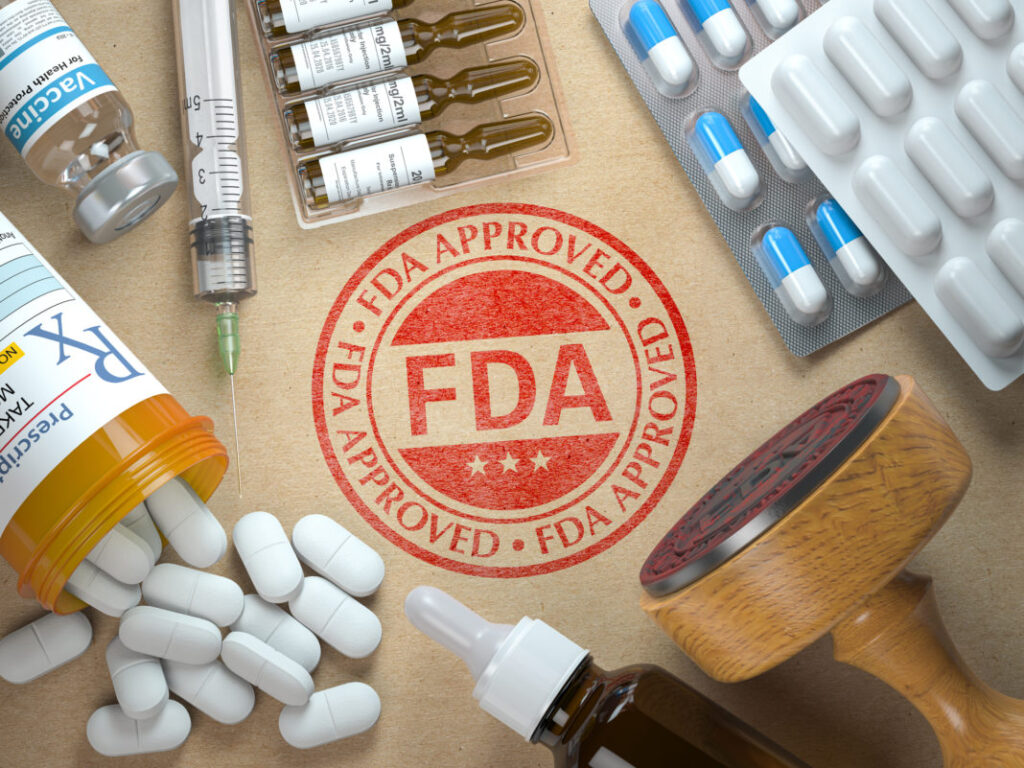
- Published in Corporate News / Blog
ISSCA Announces Regenerative Medicine Cell Therapies Symposium in Istanbul, Turkey April 28, 2018
(Image: Istanbul, Turkey)
The International Association for Stem Cell Application (ISSCA) has announced plans to host a regenerative medicine symposium in Istanbul, Turkey April 28, 2018.
MIAMI, Feb 14, 2018—The International Association for Stem Cell Application (ISSCA) has announced plans to host a regenerative medicine symposium in Istanbul, Turkey April 28, 2018. The symposium will focus on new advances in cell therapies.
The Istanbul international symposium is part of ISSCA’s mission to support a shift from traditional healthcare solutions to regenerative medicine and provide the latest innovative discoveries and developments in all areas of stem cell research. The symposium will host a group of renowned international speakers, experts in the field of stem cell and regenerative medicine, who will provide a full day of rigorous scientific discourse directed to physicians.
The day’s events will incorporate information on stem cell biology, medicine, applications, regulations, product development, and commercialization, business opportunities, challenges, and potential strategies for overcoming those challenges.
To learn more about the ISSCA symposium in Istanbul and to register to attend, visit the stemcellconference.org website, email info@stemcellsgroup.com, or call +1305 560 5337.
About International Society for Stem Cells Applications
 The International Society for Stem Cell Application (ISSCA) is a multidisciplinary community of scientists and physicians, all of whom aspire to treat diseases and lessen human suffering through advances in science, technology and the practice of regenerative medicine. ISSCA serves its members through advancements made to the specialty of regenerative medicine.
The International Society for Stem Cell Application (ISSCA) is a multidisciplinary community of scientists and physicians, all of whom aspire to treat diseases and lessen human suffering through advances in science, technology and the practice of regenerative medicine. ISSCA serves its members through advancements made to the specialty of regenerative medicine.
The ISSCA’s vision is to take a leadership position in promoting excellence and setting standards in the regenerative medicine fields of publication, research, education, training, and certification.
As a medical specialty, regenerative medicine standards and certifications are essential, which is why ISSCA offers certification training in cities all over the world. The goal is to encourage more physicians to practice regenerative medicine and make it available to benefit patients both nationally and globally. Incorporated under the Republic of Korea as a non-profit entity, the ISSCA is focused on promoting excellence and standards in the field of regenerative medicine.
Regenerative Medicine symposium Istanbul
- Published in Press Releases
Global Stem Cells Group to Launch Regenerative Medicine Training Program for Mexico at Congreso Internacional de Medicina Antienvejecimiento y Longevidad
(Image: Regenerative Medicine Training Program for Mexico)
MIAMI, Feb. 14, 2018— Global Stem Cells Group, a world leader in stem cell and regenerative medicine, will launch the organization’s complete Regenerative Medicine Training Program for Mexico at the IX Congreso Internacional de Medicina Antienvejecimiento y Longevidad (Congress in Anti-Aging and Longevity Medicine) to be held February 16 – 18, 2018 in Mexico City.
The training course will be held in Mexico City April 13 – 14, 2018.
The “Practical Course of Cell Therapies in a Clinical Environment” is a two-day, hands-on training course that provides physician attendees with the intellectual property of 22 proprietary protocols that allow treatment procedures for degenerative and aesthetic conditions and diseases in-office, as well as step-by-step videos of each protocol.
Course attendees will acquire the skills that will allow them to offer alternative therapies to patients who suffer from degenerative conditions for which no traditional medical solutions are available. Attendees will treat three to five live patients during the course. Upon completing the course successfully, participants will join a select group of physicians at the forefront of medical science—only 5 percent of physicians worldwide have access to studies of cell therapies, and only 0.01 percent are currently practicing these therapies.
Qualified physicians learn skills that can be used to treat patients in-practice, and utilize the training for career advancement.
Participating physicians will also receive access to the online stem cell training course to review all content and procedures introduced in the 2-day clinical training course, patient forms and guidelines, procedure informed consent forms, didactic lectures, training booklets, and more.
The Regenerative Medicine Training Program for Mexico was developed for physicians and high-level practitioners to learn techniques in harvesting and reintegrating stem cells. Stem cell therapies continue to revolutionize the healthcare industry and help improve the quality of life for patients.
To learn more about the certification training course and register to participate, visit the Stem Cell Training Course website, email info@stemcellsgroup.com, or call 305-560-5337.
About Global Stem Cells Group
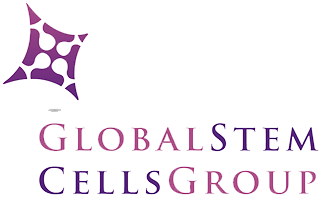 Global Stem Cells Group (GSCG) is a worldwide network that combines seven major medical corporations, each focused on furthering scientific and technological advancements to lead cutting-edge stem cell development, treatments, and training. The united efforts of GSCG’s affiliate companies provide medical practitioners with a one-stop hub for stem cell solutions that adhere to the highest medical standards.
Global Stem Cells Group (GSCG) is a worldwide network that combines seven major medical corporations, each focused on furthering scientific and technological advancements to lead cutting-edge stem cell development, treatments, and training. The united efforts of GSCG’s affiliate companies provide medical practitioners with a one-stop hub for stem cell solutions that adhere to the highest medical standards.
Global stem cell’s mission is to be the largest recognized stem cell and regenerative medicine network in the world.
Regenerative Medicine Training for Mexico
- Published in Press Releases
Global Stem Cells Group CEO Benito Novas to be a Keynote Speaker at Congreso Internacional de Medicina Antienvejecimiento y Longevidad Feb. 16-18, 2018
Benito Novas, Global Stem Cells Group CEO
MIAMI, Feb. 14, 2018— Global Stem Cells Group founder and CEO Benito Novas will be a keynote speaker at the IX Congreso Internacional de Medicina Antienvejecimiento y Longevidad (Congress in Anti-Aging and Longevity Medicine) February 16 – 18, 2018 in Mexico City. The conference is organized by The Institute of Anti-Aging and Longevity Medicine, the leading anti-aging and regenerative medicine society in Mexico.
Novas, a global entrepreneur and medical marketing professional in the fields of biotechnology, life sciences, and healthcare development, will share his expertise on the latest marketing tools for managing a medical practice. Topics will include social media strategies and tools for promoting physician practices, and how to design Google and Facebook ads that generate targeted leads and engage new potential patients.
The healthcare industry is continuously pursuing new and improved medical and technological advancements, treatments, and expanded healthcare opportunities that offer a higher level of patient care. The industry serves a uniquely broad audience, and today’s consumers are searching online for medical providers.
In fact, the majority of consumers rely on the internet to find healthcare providers.
For this reason, Novas says it is critical for medical practices and providers to stay on top of digital marketing strategies and trends in order to keep their organizations competitive and to generate new leads in today’s patient-centric market.
Novas will join healthcare professionals from around the world who specialize in treatments for conditions and diseases affecting aging and elderly patients from around the world for the anti-aging conference in Mexico City later this month.
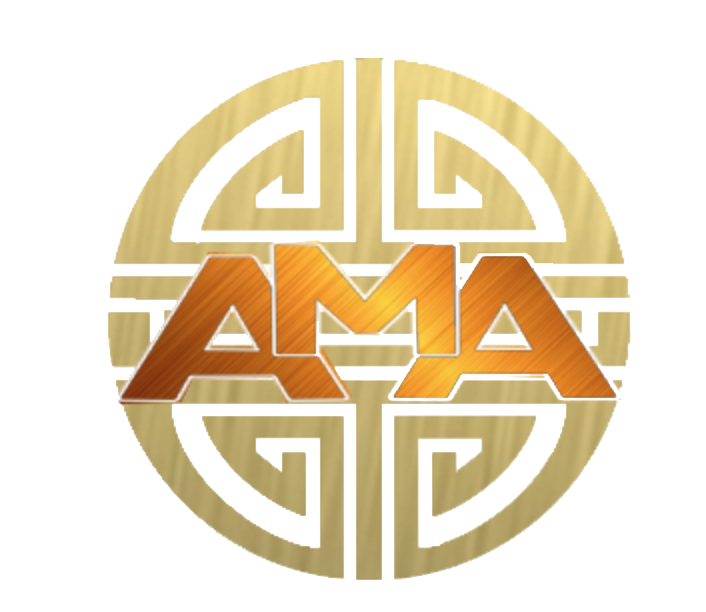
Instituto de Medicina Antenvejecimiento Longevidad
IX Congress attendees will be granted recognition for their participation and will have access to the event ‘s commercial area where they can purchase products and learn about business opportunities with leading national and international companies specializing in anti-aging medicine.
The conference will be held at Hotel Reforma in Mexico City.
To learn more or register for the IX Congreso Internacional de Medicina Antienvejecimiento y Longevidad, visit the conference website. For information on Benito Novas and regenerative and stem cell medicine, visit the Global Stem Cells Group website, email info@stemcellsgroup.com, or call +1 305 560 5337.
About Global Stem Cells Group

Global Stem Cells Group (GSCG) is a worldwide network that combines seven major medical corporations, each focused on furthering scientific and technological advancements to lead cutting-edge stem cell development, treatments, and training. The united efforts of GSCG’s affiliate companies provide medical practitioners with a one-stop hub for stem cell solutions that adhere to the highest medical standards.
Global stem cell’s mission is to be the largest recognized stem cell and regenerative medicine network in the world.
Benito Novas keynote speaker
- Published in Press Releases

